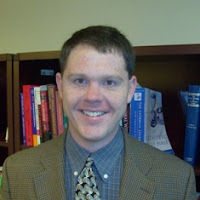We share one globe that Pope Francis, the United Nations, world leaders, scientists and climate change activists each appeal that we protect better. But in our world of different religious beliefs, how do the special qualities of our planet play out?
Dr. Daniel Scheid, assistant professor of theology at Duquesne University, depicts how multiple religions intersect at the crossroads of caring for the Earth and its inhabitants in his new book, The Cosmic Common Good: Religious Grounds for Ecological Ethics (Oxford University Press).
“There’s not one global theology,” Scheid said, “but there’s a global ethic of sustaining the Earth and other non humans, of preserving it for future generations.”
In the current Zeitgeist, his work will appeal to those who see ecology and sustainability as key issues with roles in businesses, classrooms and daily consumer decisions, sharing how Catholics, Buddhists, Hindus and Native Americans interact with the Earth.
“The cosmic common good acknowledges and recognizes the reality and the utility of the nonhuman world; all creatures use each other for survival,” Scheid tells his readers. “But it also celebrates the goodness of nonhumans and the life-supporting contexts in which they dwell, for what and who they are, for who we are when we are with them, and that only together are we truly ‘us.’”
No single religion has a monopoly on this concept.
“Catholic theologians will recognize themselves, but will also learn about Hindu, Buddhist and indigenous traditions,” Scheid said. “There are differences, but similarities. I speak from within my Catholic tradition, but in dialogue with theologians in other traditions who are similarly reorienting their traditions ecologically. By cultivating these traditions, we hope to find aspects to energize and motivate people to work toward ecological sustainability.”
Scheid’s work is based on Catholic social thought, in keeping with the recent eco-encyclical of Pope Francis. “He has contributed to the urgency of a climate deal,” Scheid observed. “My hope is the conversation is reaching a critical mass. This is not just about the wilderness out there, but the common good—and humans are part of it.”
“Negative environmental impacts are often experienced disproportionately by the poor and by developing nations,” Scheid wrote, “and this is clearly true of climate change, in which those who suffer the most are the least responsible for bringing it about.”


No comments:
Post a Comment